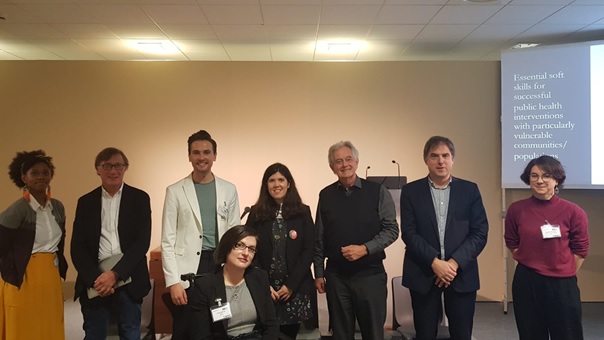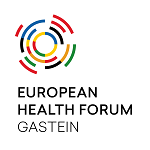Is knowledge enough to be a good health professional? And, do we have the tools necessary to address the needs of vulnerable groups? Soft skills – also known as “people skills” or “interpersonal skills” – not only allow health professionals to be better at their job, they are an essential part of it.
To address this professional development need, Young Forum Gastein, EUPHAnxt, and EuroNet MRPH dedicated a skills-building session to this topic at the European Public Health conference, which took place from 20th to 23rd November 2019, in Marseille, France.
During this workshop, experts, health professionals, and advocates discussed the role of soft skills in their work and how to best develop skills necessary to work with vulnerable populations.
What if you were not born a good communicator or leader? Luckily these skills can be acquired with work and experience, the first speaker James B. Chauvin, Former President of the World Federation of Public Health Associations (WFPHA), explained. A health advocate at heart, Chauvin kick-started the session by sharing the lessons of his global health experience on the importance of soft skills. He identified five key skills essential to working with vulnerable communities, particularly highlighting the importance of consensus-building and the ability to listen. He said: “Seeking a win-win situation, listening, understanding the context, and standing back when necessary are essential soft skills for a successful public health intervention.”
With the help of three further experts – Arjan Van der Star, President of Gender and Sexual Minorities Section at EUPHA; Antonio Chiarenza, Chair of the WHO Health Promoting Hospitals and Health Services Task Force on Migration, Equity & Diversity; and Freek Spinnewijn, Director of Feansa – participants discussed in groups how to develop the soft skills particularly relevant to working with vulnerable populations such as sexual minorities, homeless people and migrants. They highlighted the importance of adequate training and practice for developing soft skills but also their complementarity with developing knowledge and structural/systemic approaches to vulnerabilities. All three groups pointed out the relevance of good communication, not only with the target population but also with one’s colleagues and institutions. The need for further training and recognition of soft skills was also emphasised.
Speakers left workshop-attendees with key opportunities to seize, highlighting both the importance of trust and communication as well as the opportunity to learn from each other and from the target communities themselves.
Further topic related health issues will be addressed and discussed during the European Health Forum Gastein (EHFG) conference from 30 September to 2 October 2020 in Bad Hofgastein, Austria.

From left to right: Keitly Mensah (EUPHAnxt), Antonio Schiarenza (HPH Task Force on Migration, Equity & Diversity), Arjan der Star (EUPHA Gender and Sexual Minorities Section), Elodie Besnier (YFG/Norwegian University of Science and Technology), Gisela Leiras (EuroNet MRPH), James B. Chauvin (WFPHA), Freek Spinnewijn (European Federation of National Organisations Working with the Homeless), and Laura de la Torre (EuroNet MRPH)
Published in GI-Mail 01/2020 (English edition).
- Do you already know our monthly newsletter GI-Mail with useful tips on postgraduate courses?
Sign up here. - Are you looking for vacancies or new career challenges? Here you will find the latest vacancies and job offers.
- Are you interested in up to date postgraduate courses and CME? In our education database »medicine & health« you will find new education events from over 2300 organizers.

